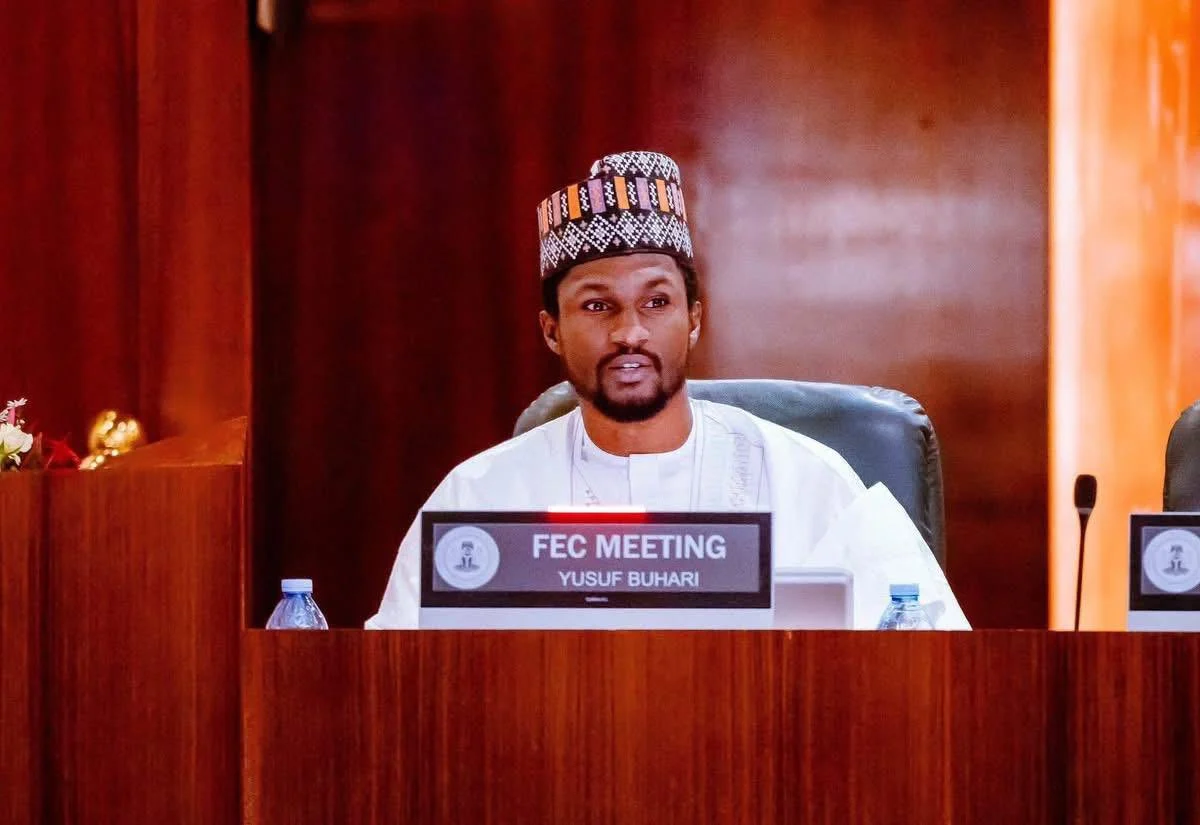In this part of the world where names open doors faster than merit ever could, Yusuf Buhari has quietly chosen the longer hallway,the one lined with purpose,not privilege. While others sprint into the spotlight, he walks in the shadows. Not because he has nothing to prove, but because he doesn’t need the world to notice him to be significant.
In an era where legacy often turns into loud entitlement, Yusuf Buhari has chosen the path least expected,silence, restraint,and a quiet commitment to purpose. The only son of Nigeria’s former President Muhammadu Buhari, Yusuf has worn his lineage not as a badge to wield, but as a burden to carry with grace.
Before his motorcycle accident in 2017, not many even knew who he was,he rarely courted the public eye, and even when he emerged, it was never to speak, never to claim, never to assert. He was simply there a soft presence behind the hardened image of his father.
Before the flashing lights of protocol and the weight of a last name, there was simply Yusuf a quiet, unassuming young man raised in the long shadow of his father’s power. Where many might have chosen the limelight, Yusuf chose dignity. Where others wore entitlement like a second skin, he remained resolutely understated. His public appearances have been few, his voice almost never heard, and yet in his silence, there is a message one of restraint, of measured presence, of a young man deeply aware of the burden of perception.
The motorcycle accident that nearly claimed his life in 2017 was a cruel interruption, but also a transformation. Many thought it would be a turning point into brash flamboyance instead, it became a gateway into depth. He emerged quieter, more withdrawn, and seemingly more contemplative. Yusuf didn’t grant interviews or seek public pity. He simply resumed life, quietly, a rare decision in a country where survival often demands noise.
At his father’s funeral, he stood not as the son of a president, but as a grieving young man,simple, composed, visibly pained. No theatrics, no exaggerated displays of grief, just the solemn weight of loss on his shoulders. In that stillness, he earned something far greater than popularity, he earned respect. It was the grace of his grief that left many speechless.
Even more telling is his decision to pursue a career with the United Nations an institution built on diplomacy, quiet leadership, and service. Yusuf could have easily slipped into political succession or corporate luxury,yet he chose the hard and often invisible work of international policy. In a country where names are often louder than merit, Yusuf is slowly crafting a name of his own not by force, but by character.
Not all legacies are loud. Some whisper with grace and still leave a thunderous impact.A country obsessed with noise, Yusuf Buhari’s silence has been his most eloquent statement.
Where his name could have opened any door, he chose instead to walk the quieter path unarmed by privilege, fortified by discipline. There are those born into greatness, and then there are those who choose to earn it. Yusuf is doing both.
In a world where last names are used like access cards, Yusuf Buhari has chosen instead to build his own door.
He didn’t inherit silence he mastered it. And in that silence, he found the voice of dignity.
His grief was not loud, but it echoed across the nation.
Yusuf Buhari is proof that legacy is not about what you inherit, but how lightly you carry it.
He stands not as the son of a president, but as a man trying to matter in a world that expects him only to be famous.
The loudest thing about Yusuf Buhari is his restraint.
Some wear power like armor,Yusuf wears his father’s memory like linen soft, weighty, and sacred.
He is not just a quiet boy in a loud nation, he is a man teaching us that influence doesn’t always have to arrive with sirens.
But perhaps it is in grief that Yusuf’s character revealed its true size. During the burial of his father, he was a portrait of dignified sorrow neither theatrical nor withdrawn, but composed, grounded. Where others might have seized the occasion to make political statements or media appearances, Yusuf stood like a son first, a Nigerian second, and a Buhari last. His mourning was deeply human, stripped of entitlement, yet draped in quiet strength.
What is most commendable indeed remarkable is his refusal to live off the weight of his surname. Yusuf Buhari is pursuing a career with the United Nations, not as a ceremonial figure or token hire, but as a man trying to make a mark beyond the borders of his country, and outside the shadow of his father. That decision alone speaks volumes in a world where the children of the powerful often inherit not just influence, but arrogance.
He is simple, humble very much like his father in his early days. Yet unlike many children of privilege, Yusuf has not attempted to inflate his public relevance. He has not weaponized his last name. He has not bought fame. He has simply chosen the long, hard road of personal merit.
In a nation weary of flamboyant scions and performative legacies, Yusuf Buhari is a refreshing exception a man who walks quietly in a noisy world. A son who honors his father not through press conferences or photo ops, but by living a life that requires no applause.
Stephanie Shaakaa
08034861434



